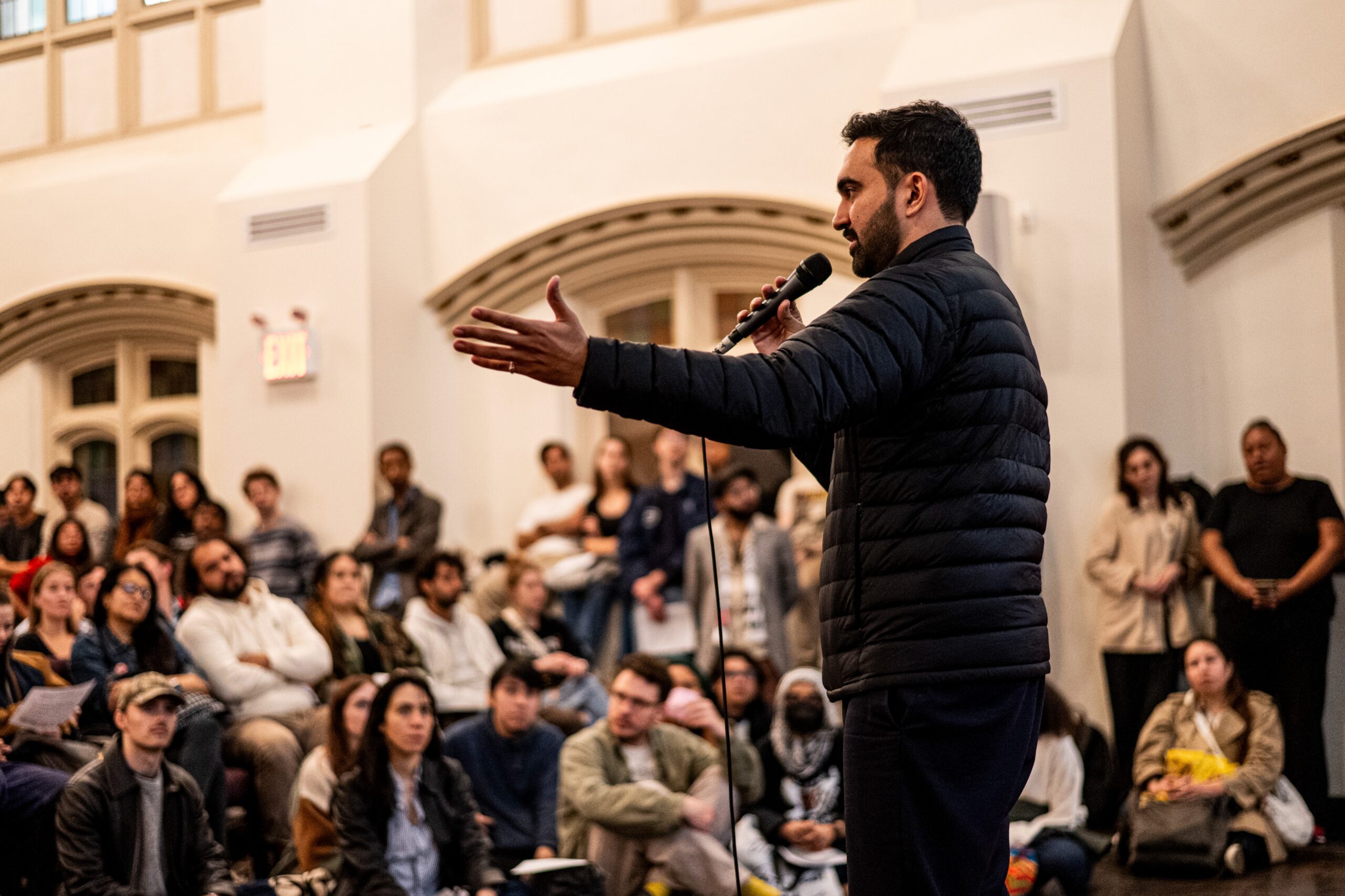
The victory of Zohran Mamdani in the Democratic mayoral primary election in New York City could mark a significant political shift, especially given the growing influence of hardcore right-wing politics in the United States and worldwide. Although this electoral contest is confined to the five boroughs of the so-called financial capital of the capitalist world, the consequences of Mamdani’s potential victory as mayor of New York are likely to extend well beyond the city’s borders. Mamdani’s democratic socialist campaign proposes a more favourable agenda for the city’s working class: that New York City should be governed in the interests of working people.
With the relentless advance of right-wing ideologies, driven by Donald Trump’s political resurgence, the nation is increasingly shaped by reactionary forces, while mainstream Democrats provide only weak opposition. In this context, Mamdani’s victory represents a significant achievement for the American left. He was well-qualified to represent the aspirations of the American working class at a time marked by rising inequality, housing crises, police brutality, and environmental disasters.
The road to city hall: a campaign of struggle, not show
Mamdani, the Ugandan-American son of the distinguished scholar Mahmood Mamdani and acclaimed documentary filmmaker Mira Nair, gained recognition as a member of the Democratic Socialists of America (DSA) and as a State Assembly member representing Queens. Faced with a hostile right-wing campaign and uninspiring opposition from Democratic challengers, Mamdani transcended identity and celebrity politics to champion working-class issues such as affordable housing, public transportation, and essential public services.
While his Democratic and Republican contenders concentrated their campaigns on issues such as economic growth, startup accelerators, and private security, Mamdani directed his attention to the needs of tenants, transit workers, food delivery drivers, and the unemployed. His vision for this election was that the working class, rather than landlords and billionaires, should own each city.
His campaign largely revolved around:
- Affordable housing and immediate rent freeze – Over the past few months, the number of homeless individuals in New York City has reached a record high. This serious issue has been inadequately addressed by the current mayor, Eric Adams, who infamously stated, “I am real estate.” Adams, who is currently facing several indictments on corruption and bribery charges, appears to be aligned with the interests of landlords. Additionally, Andrew Cuomo, a prominent contender known for opposing tenant protection bills and supported by landlord groups, struggled to secure backing from working-class voters. In contrast, Zohran Mamdani ran a campaign centred around affordable housing and advocated an immediate rent freeze. Throughout his campaign, he consistently championed tenant rights, proposing the construction of 200,000 affordable housing units and a rent freeze to stabilise the city’s untenable situation.
Exit polls indicated that the predominant concern in this New York City election was the escalating cost of rental accommodations. The rationale presented by the real estate sector, asserting that rent hikes are necessary to maintain stable property values, experienced significant unpopularity. Individuals from various working-class backgrounds across the boroughs expressed a keen interest in Mamdani’s proposals.
However, it was very difficult to achieve this victory. Landlord-backed organisations were paying large amounts to sponsor Andrew Cuomo. According to housing rights activists, “The real estate lobby is spending big to make possible the election of the scandal-felled former governor. In the final weeks of the campaign, the New York Apartment Association contributed over $2.5 million to a Super PAC supporting Cuomo.” They also note, “Other high-profile real estate givers include Douglas Durst of the Durst Organisation, whose family controls an $8 billion fortune, and Douglas Eisenberg of A&E Real Estate, who is being sued by the city for several outstanding code violations.” Former Mayor Michael Bloomberg, who raised rents on rent-stabilised apartments by 33% during his time in office, recently gave $8.3 million to Cuomo’s campaign. Despite the landlord-injected funds, labour unions and socialist movements were able to channel their energy positively. Mamdani’s campaign was a strong symbol in the fight against well-established real estate capital power. He should be praised for his strong opposition to landlord-sponsored politics that harmed people. - Sustainable and environment friendly transportation program – At a rally with Senator Jeremy Sanders, Zohran Mamdani echoed the voice of thousands of people: “The government must deliver an agenda of abundance that puts the 99 per cent over the 1 per cent.” With temperatures in the US rising—forecasts say they will reach over 100°F and the heat index will reach 110°F—air conditioning has become a must. But the Mayor’s Office in New York City says that more than 30% of residents can’t pay their utility bills. This crisis is worsening due to the earlier start of NYC’s spring allergy season this year and rising costs, which are making it difficult for many people to afford basic living expenses.
Mamdani said that capitalist greed was to blame for the damage to the environment and that big investments in public transportation could help reduce carbon emissions. He suggested replacing bus fares with taxes to ensure that everyone could afford to use them. This idea upset his political opponents. However, the results clearly demonstrated that people are willing to ride if they can afford it, as evidenced by a 14% increase in ridership and a 30-38% increase in total rides.
Free and cheap public transport is vital for society and the environment. As rents rose, working-class people had to move to the outskirts, making access to public transportation even more important. Many who live in the outer boroughs are Afro-Americans and Hispanics, and they all supported Mamdani’s transit plan. It is thought that a large part of his support came from these under-represented groups.
- Universal childcare and healthcare for everyone – COVID-19 exposed the extent of the dysfunction within America’s health care system, with New York City being particularly affected. Over 55,000 lives were lost, and the reliance on private insurance models failed to safeguard the most vulnerable members of society.
Mamdani advocated for a system of publicly subsidised healthcare, funded by increased taxes on more affluent citizens. This approach would reduce individuals’ dependence on private health insurance companies. He also proposed the introduction of a universal childcare plan to support working parents, which would include free pre-kindergarten care. This initiative would enable young parents to return to work, assured of their children’s well-being.
These compelling demands were grounded in the genuine experiences of everyday individuals. The election results indicated that the electorate was prepared for extensive reforms and had grown weary of neoliberal compromises. - Humanitarian solution to the Israel–Palestine issue – With the recent Israeli attacks on Palestine, which many have described as “live-streamed genocide” and were supported by the United States, massive protests erupted across the country. Protesters faced hostility from successive administrations, particularly under Trump, and a new wave of Islamophobia was unleashed throughout the United States. The media attempted to downplay the significance of the protests by labelling them as mere symptoms of “woke culture,” yet millions took to the streets to advocate for Palestinian justice. Solidarity with Palestine undoubtedly represented an anti-establishment mobilisation across the nation.
Mamdani emerged as a defender of those subjected to unfair treatment. He contended that the call for a ceasefire represents a principled stance rather than an extremist position, reflecting the interests of the working class. In response to slogans like “Globalise the Intifada,” he highlighted the need for tangible actions to safeguard human rights and dignity. His principled stance garnered strong support from Arab, Muslim, and anti-war voters throughout the city.
Given that there are around one million Jewish residents in New York City’s five boroughs, it’s not surprising that antisemitism was a major factor in the recent Democratic primary for mayor. There is zero proof that Mamdani has ever held antisemitic beliefs but the pro-Israel establishment is understandably terrified by his mayoral bid in New York City. The essential issue, though, is not antisemitism. The Democratic Party’s dwindling support for Israel is being twisted into an antisemitic narrative on purpose.
To know more on Israel-Palestine crisis – Israel’s Genocidal Campaign: The Struggle Continues by Achin Vanaik
Busting the myth: grassroots organising instead of conventional campaigning.
There are several factors that contributed to Zohran Mamdani’s victory; however, the most significant one is his demonstration that social media manipulation, advertising, and catchy slogans are not sufficient to secure electoral success. His march towards City Hall is fundamentally driven by genuine grassroots mobilisation.
The significance of Mamdani’s victory cannot be overstated. It offers hope to the working class and suggests that grassroots movements can overcome fear, economic power, and media influence. The following analysis will explore the broader political implications of this historic triumph.
Capitalist regime confronts working-class Rage
Donald Trump’s surprise return to national politics was a leading factor in establishing the political tone in 2025. Mainstream media framed the issue as presenting only two options: Trumpian authoritarianism and the centrist Democratic Party establishment position with Wall Street. That false choice was echoed in the New York City mayoral election, where candidates framed their campaigns as struggles to “protect our city’s economic climate and freedoms.”
What they actually meant was that landlords can evict people, the NYPD can be brutal, and developers can gentrify neighbourhoods.
Here, Mamdani’s message was radical and true. He would not allow politics to be only about moral outrage regarding Trump. Rather, he declared that the far right expanded because centrist neoliberals did nothing to address the pain of working-class individuals.
While the rich reaped historic returns on the stock market and a seemingly recovering economy, Mamdani uncovered the realities behind the numbers: mass evictions, insecure labour, and exploitation in the gig economy. His triumph proves that liberal courtesy is no longer enough to conceal the built-in flaws of capitalism.
Victory of the issue, not an individual
If Zohran Mamdani’s victory is viewed merely as a triumph of a charismatic candidate, the true nature of this political moment may be overlooked. This campaign was not a top-down, race-based electoral effort; rather, it was a grassroots mobilisation that included NYC DSA, tenant unions, labour councils, and immigrant mutual aid networks.
From Brooklyn to the Bronx, organisers engaged in deep canvassing, connecting with individuals one-on-one and educating them about politics. Many who had not previously voted became first-time voters. It was not marketing that secured this success; it was militancy.
Mamdani has consistently emphasised that elections are not the ultimate goal. “Our aim is higher than just to win an election; we wish to build the capacity to shift the recipients of this city,” he has stated in various speeches. He pledged to govern in coalition with movements, rather than above them.
The tasks ahead: strengthen the mass movement and fight for people’s right
Socialists should avoid becoming overly complacent following Mamdani’s victory. This win must be viewed as part of a broader struggle that remains incomplete. Even within City Hall, a socialist mayor faces numerous challenges, including bureaucracies, police unions, real estate lobby groups, and a hostile media, all of which oppose the interests of the working class.
Many on the left argue that Mamdani’s triumph and the excitement it has generated—stemming from his democratic-socialist politics and support for Palestine—carry inherent risks. Such enthusiasm has historically led to disorientation and disillusionment when reformist Democrats inevitably betray the left. Consequently, revolutionaries must maintain their opposition to all Democrats and officials within the capitalist state. Moreover, despite the assertions of the DSA, the Democrats are structurally resistant to internal reform and popular, progressive demands. Those who attempt to reform the Democratic Party often observe themselves transformed instead—from progressive activists into defenders of the status quo.
However, even if we hold little faith in electoralism or in socialists effecting positive change within the Democratic Party, we should still extend at least critical support to the most left-leaning candidates who continue to run. Until a genuinely revolutionary movement takes root in the US, this is the best option for us.
Secondly, the triumph of an idea or the issues at stake is far more significant than the success of individuals. The genuine hope surrounding this victory stems from the determination of ordinary people to continue the fight against the anti-working-class measures enacted by the US administration. Socialists must sustain momentum in mass protests and mobilise a diverse base of participants. It is essential to construct a platform that extends beyond the electoral cycle, establishing worker councils and tenant assemblies as instruments of resistance to power. We must advocate for a socialist strategy that transcends mere policy proposals to fundamentally transform the nature of property holdings within a capitalist society.
Mamdani’s challenge will be to navigate the complexities of implementing reforms while preparing for potential interference, as well as to build robust institutions capable of withstanding the pressures of electoral cycles and right-wing assaults. Zohran Mamdani’s election as mayor in 2025 marks a significant milestone for socialist politics in America. It disrupts the corporate duopoly of the Democrats and Republicans, proving that class politics can succeed even amid capitalism. While Trump vocally asserts his commitment to “saving America” for the benefit of the wealthy and police unions, Mamdani offers an entirely different vision: a city created by and for workers. Mamdani’s victory represents a challenge to Trump’s dominance during a time of diminishing hope and widespread despair. It demonstrates that another world is not only conceivable but is actively being built through workers’ protests, rent strikes, and now, within the halls of City Hall.
Postscript
Although Mamdani’s recent election is an encouraging step for the American left, it also poses a fairly daunting strategic challenge. As some critics rightly note, our “critical support” for Mamdani cannot be a fig leaf for our alignment with left reformism. Simply warning against the “threats” of Democratic Party entryism is insufficient without confronting the structural apparatus that the party uses to co-opt and dissipate radical momentum. Time and again, popular upheavals—most notably those based on working-class aspirations—have been redirected into institutional dead ends. Without organisational independence from the Democratic Party, even the most dedicated socialist who takes office is at risk of becoming a crisis manager instead of a transformative force.
During periods of building movement, this critique becomes especially crucial. As revolutionaries, our task is not to wait for movements to exhaust themselves before building on a unified alternative. Rather, we must act while the people are in motion—while thousands are becoming politicised in battles over housing, workers’ struggles, and anti-war movements—and offer a revolutionary pole that does not collapse into the “left wing of the possible.” Mamdani’s campaign offered hope, but we can sustain it only by constructing mass structures beyond the state. In addition, Mamdani himself now represents a contradiction that no socialist in the executive can help but face under capitalism: he will be tasked with enforcing a repressive instrument he once tried to resist. When ICE raids resume or Palestinian solidarity protests erupt in defiance of federal decree, will Mamdani’s NYPD protect protestors—or kettle and criminalise them? The question is not merely theoretical; it is an unavoidable political trial. Without a foundation of independent, organised mass resistance that holds elected officials accountable—not to the party, but to the class—they will be forced to decide between order and justice. The left must prepare to fight—not only with Mamdani but sometimes against him.
[The author thanks Duncan Chapel for his inputs.]
Editorial Board Member of Alternative Viewpoint
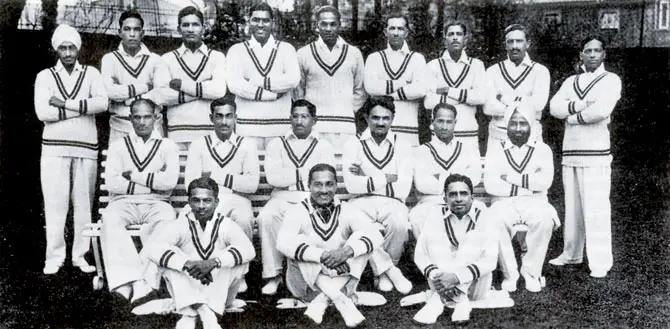
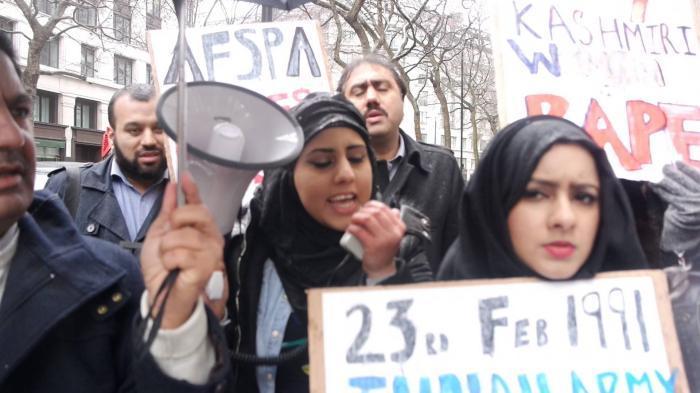
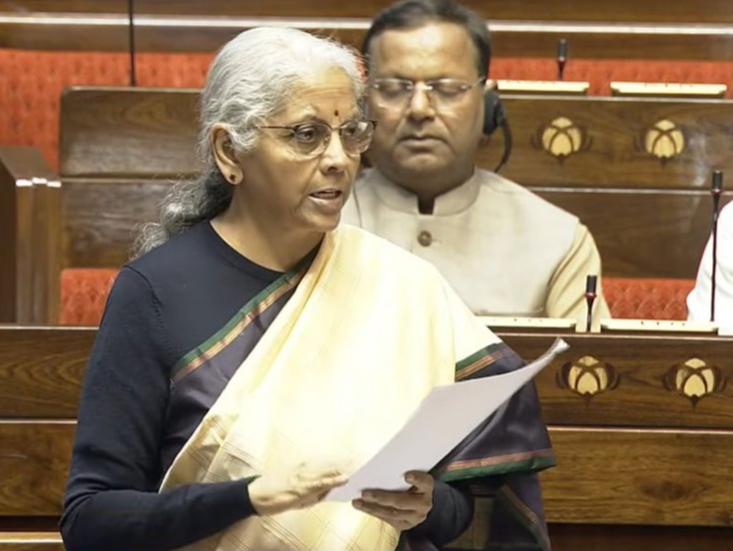
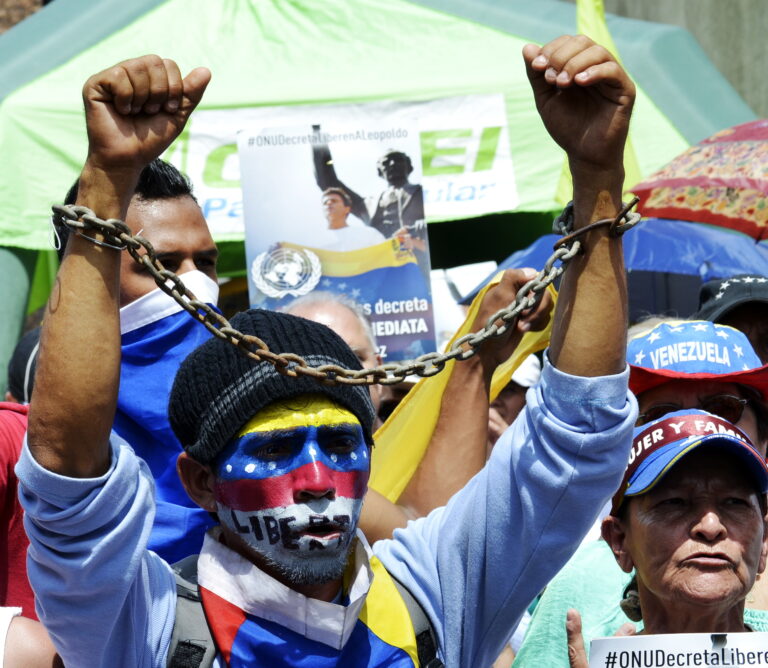
I reckon something truly interesting about your weblog so I saved to bookmarks.
I was curious if you ever considered changing the layout of your blog? Its very well written; I love what youve got to say. But maybe you could a little more in the way of content so people could connect with it better. Youve got an awful lot of text for only having 1 or 2 pictures. Maybe you could space it out better?